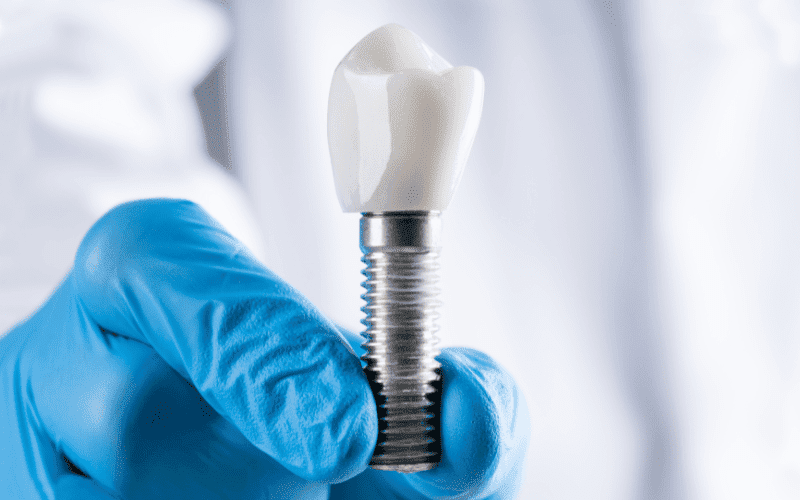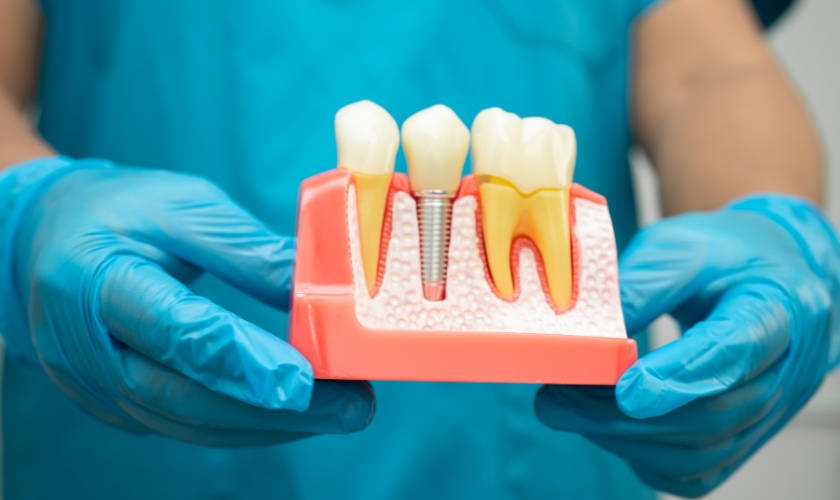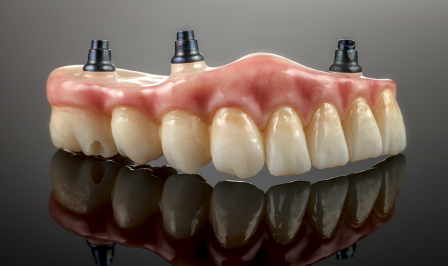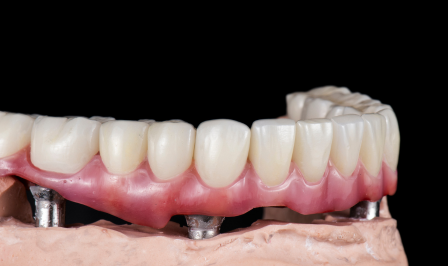
Dental implants can be a game-changer for those seeking a permanent solution to missing teeth. They offer durability, functionality, and a natural look, making them a popular choice for many. But, like any medical procedure, implants come with their own set of risks. One major concern is implant failure, which can lead to discomfort and additional costs.
Preventing implant failure is key to ensuring your investment lasts. In this blog, we’ll explore practical strategies and essential tips to keep your implants secure and functioning flawlessly. Whether you’re preparing for surgery or looking to maintain your current implants, understanding these preventive measures will help you enjoy the full benefits of your dental implants with confidence.
What Should You Know About Implant Failure?
Implant failure can be a daunting prospect, but knowing what causes it can help you prevent it. Various factors contribute to implant failure, including:
- Poor Osseointegration: This occurs when the implant does not properly fuse with the jawbone.
- Infection: Bacterial infections can cause inflammation and tissue loss around the implant.
- Mechanical Issues: Problems with the implant components, such as screws or crowns, can lead to failure.
- Excessive Stress: High bite forces can stress the implant and surrounding structures.
Understanding these factors allows you to take proactive steps to mitigate risks and ensure a successful implant experience.
Pre-Surgery Considerations
Before undergoing dental implant surgery, thorough planning is crucial. Start with a comprehensive evaluation, including:
- X-rays and CT Scans: These imaging techniques help assess bone density and structure, ensuring a proper fit for the implant.
- Medical History Review: Disclose any health conditions or medications that might affect the healing process.
- Bone Quality Assessment: Adequate bone quality is essential for the implant to integrate successfully.
By addressing these factors before surgery, you can significantly reduce the risk of implant failure.
Post-Surgery Care
Proper post-surgery care is essential for implant success. Follow these guidelines to promote healing and prevent complications:
- Follow Post-Op Instructions: Adhere to the dentist’s instructions regarding medication and care.
- Maintain Oral Hygiene: Brush and floss regularly to prevent infection.
- Avoid Hard Foods: Stick to soft foods to avoid stressing the implant site.
Effective post-surgery care helps ensure that your implant heals correctly and integrates well with your jawbone.
Regular Check-Ups and Maintenance
Routine check-ups are vital for long-term implant success. Schedule regular visits with your dentist to:
- Monitor Implant Health: Your dentist will check for signs of infection or mechanical issues.
- Professional Cleanings: Regular cleanings help maintain oral hygiene and prevent plaque buildup.
- Adjustments: If needed, your dentist can make adjustments to ensure the implant is functioning properly.
Consistent dental visits ensure any issues are addressed promptly, keeping your implants in top condition.
Lifestyle and Dietary Adjustments
Certain lifestyle and dietary choices can impact the longevity of your implants. Consider these adjustments:
- Avoid Smoking: Smoking can impair healing and increase the risk of infection around the implant.
- Limit Sugary Foods: High sugar intake can lead to plaque buildup and gum disease.
- Protect Your Teeth: If you grind your teeth, use a mouthguard to protect your implants from excessive stress.
Making these lifestyle changes supports overall oral health and enhances the durability of your implants.
Choosing the Right Implant Specialist
Selecting an experienced and qualified implant specialist is crucial for successful outcomes. Look for a professional who:
- Has Proven Experience: Ensure the dentist has a track record of successful implant placements.
- Provides Comprehensive Care: A good specialist will offer pre-surgery evaluations, post-surgery care, and ongoing maintenance.
- Uses Advanced Technology: Modern technology ensures precise implant placement and reduces the risk of complications.
For those seeking dental implants in Cedar Grove, choosing a skilled and reputable implant specialist ensures the best possible results.
Addressing Complications Early
Recognizing and addressing potential complications early can prevent serious issues. Be aware of symptoms like:
- Persistent Pain: Ongoing pain may indicate an issue with the implant or surrounding tissue.
- Swelling or Redness: These symptoms can signal infection or inflammation.
- Implant Mobility: If the implant feels loose, it may require immediate attention.
Promptly addressing these signs helps prevent further complications and maintains the health of your implants.
Preventing implant failure involves careful planning, diligent post-surgery care, and regular check-ups. By understanding the causes of failure and taking proactive steps, you can ensure a successful outcome. Choose a skilled specialist, follow their guidance, and make necessary lifestyle adjustments to support your implant’s longevity. With the right approach, you can enjoy the benefits of dental implants for years to come.








